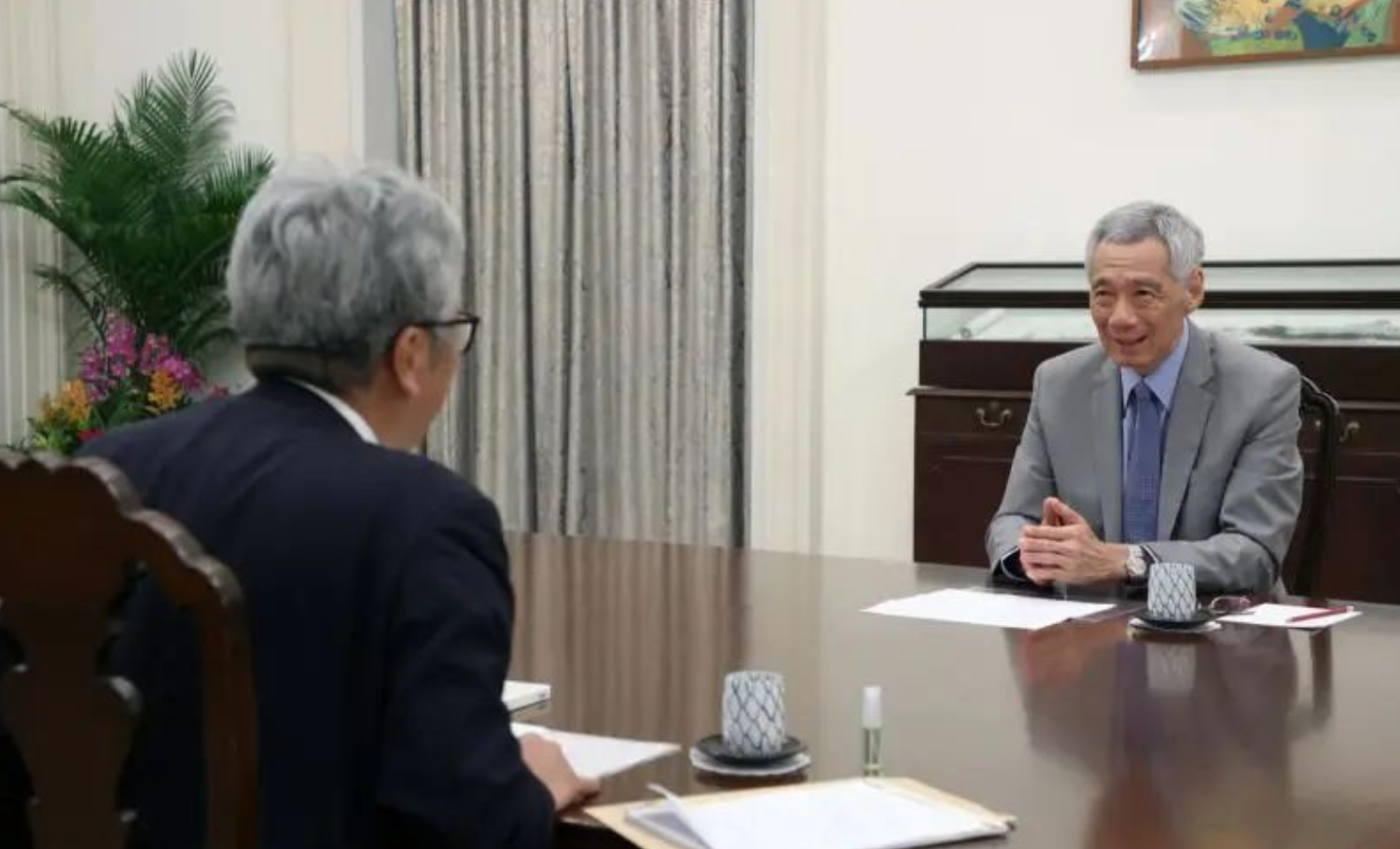After selecting a successor, Lee Hsien Loong issued a rare "warning" in an interview, bluntly saying that the cost of not doing business with China would be huge, and supporting China's accession to the Comprehensive and Progressive Trans-Pacific Partnership (CPTPP).
In mid-April, Singaporean Prime Minister Lee Hsien Loong posted a statement on social media saying the country's finance minister, Wong Hon Choi, had received overwhelming support and had been officially elected as the new leader of the country's ruling party's fourth-generation leadership team. If the DAP can win the next general election, Huang Xuncai will be the prime minister, and this matter has been decided. Just after Lee Hsien Loong chose his successor, he recently issued a "warning" on the current international economic situation in an interview with the Japanese media and vigorously supported China.

According to a may 24 report, Lee Hsien Loong pointed out in an interview with Japan's Nikkei Asia magazine that China has "been participating in regional affairs in a planned way" and put forward the "Belt and Road" initiative and the global development initiative. He believes this is positive and supportive, as well as his support for China's accession to the CPTPP. Lee Hsien Loong bluntly said that as China's economy accounts for an increased share of the global economy, it is "normal" to have more trade with China. "If you say, 'Although China has a large share, I don't want to trade with them,' you will not only pay a big price, but also create more friction and reduce the chances of maintaining peace."
It is undeniable that in recent years, as the United States regards China as its main competitor, whether in the military, scientific and technological fields, or in the political and economic fields, it can be said that the United States has used everything to suppress China, and the United States has also used its firm Cold War mentality to pull gangs and factions to engage in military alliances and economic "decoupling", for example, the "Indo-Pacific economic framework" extended by the so-called "Indo-Pacific Strategy" of the United States is aimed at targeting and containing China. In this context, Lee Hsien Loong's "warning" is, in a way, that he does not agree with the economic "decoupling" behavior of the United States, and it is also a recognition of China's important role in the global economic system.
It is worth mentioning that for the so-called "Indo-Pacific economic framework" advocated by the United States, on May 22, Chinese State Councilor and Foreign Minister Wang Yi said at a press conference after talks with Pakistani Foreign Minister Birawar that it should be drawn with a big question mark and evaluated it in three sentences. Wang Yi believes that the "Indo-Pacific economic framework" advocated by the United States should promote free trade and should not engage in disguised protectionism; it should help the recovery of the world economy and should not undermine the stability of the industrial chain; it should promote open cooperation and should not create geopolitical confrontation.
Wang Yi pointed out that at present, the United States is vigorously engaged in protectionism, has gone to the opposite side of free trade, impacted the current regional cooperation structure, and opened a reverse train of regional integration, and the trade war with China initiated by the United States has also brought serious consequences to the world and the United States. Wang Yi stressed that the code for success in the Asia-Pacific region is win-win cooperation, not zero-sum confrontation. The Asia-Pacific region should be a highland for peaceful development, not a geopolitical arena. All kinds of conspiracies to camp, NATO and Cold War in the Asia-Pacific region are unlikely to succeed.